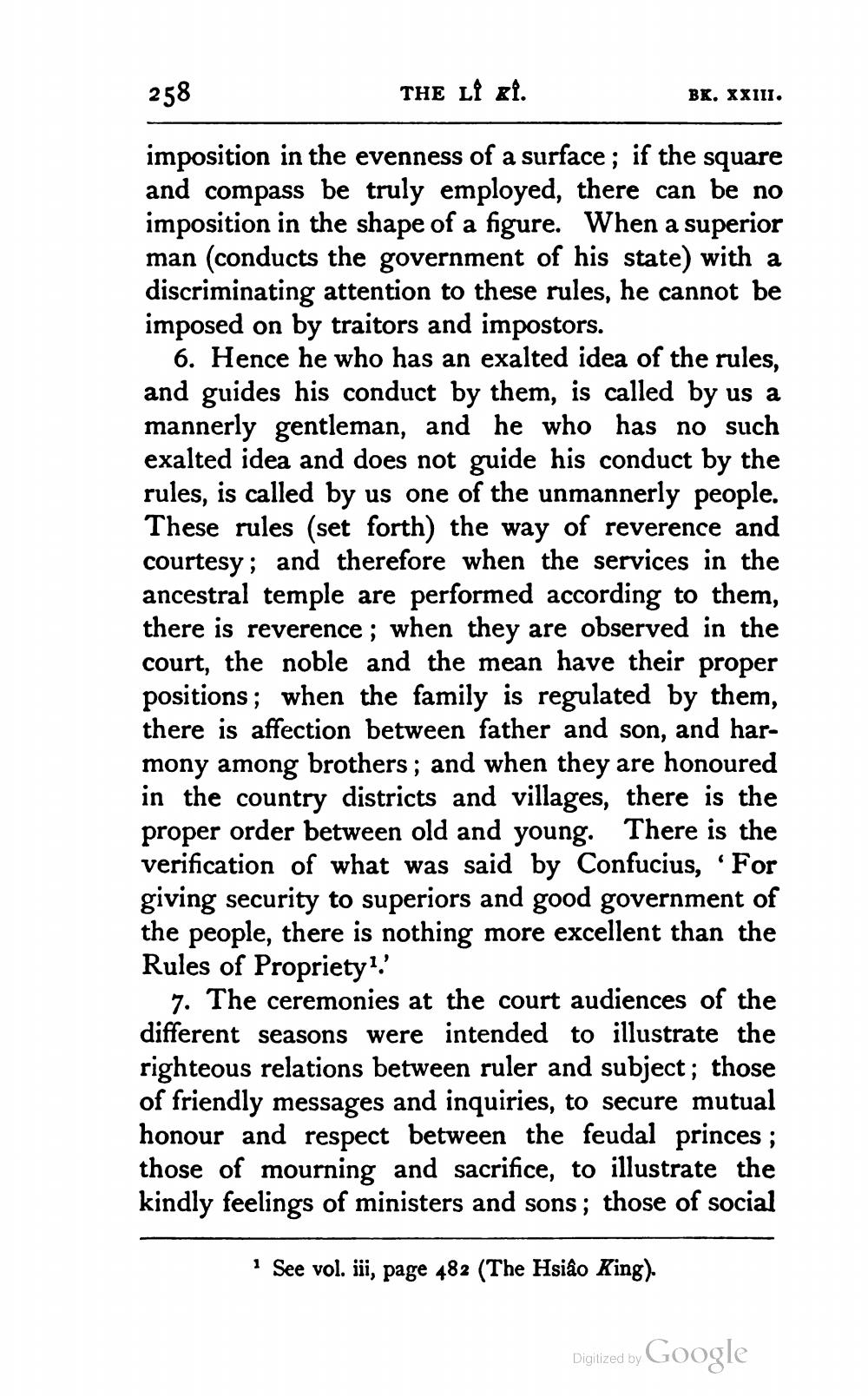________________
258
THE LÎ xi.
BK. XXIII.
imposition in the evenness of a surface; if the square and compass be truly employed, there can be no imposition in the shape of a figure. When a superior man (conducts the government of his state) with a discriminating attention to these rules, he cannot be imposed on by traitors and impostors.
6. Hence he who has an exalted idea of the rules, and guides his conduct by them, is called by us a mannerly gentleman, and he who has no such exalted idea and does not guide his conduct by the rules, is called by us one of the unmannerly people. These rules (set forth) the way of reverence and courtesy; and therefore when the services in the ancestral temple are performed according to them, there is reverence; when they are observed in the court, the noble and the mean have their proper positions; when the family is regulated by them, there is affection between father and son, and harmony among brothers; and when they are honoured in the country districts and villages, there is the proper order between old and young. There is the verification of what was said by Confucius, 'For giving security to superiors and good government of the people, there is nothing more excellent than the Rules of Propriety?'
7. The ceremonies at the court audiences of the different seasons were intended to illustrate the righteous relations between ruler and subject; those of friendly messages and inquiries, to secure mutual honour and respect between the feudal princes ; those of mourning and sacrifice, to illustrate the kindly feelings of ministers and sons; those of social
* See vol. iïi, page 482 (The Hsiko King).
Digitized by Google




